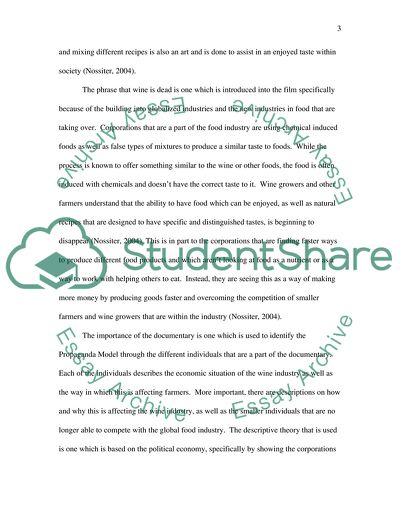Cite this document
(The Documentary Mondovino - the Propaganda Model of Globalization and Movie Review, n.d.)
The Documentary Mondovino - the Propaganda Model of Globalization and Movie Review. Retrieved from https://studentshare.org/visual-arts-film-studies/1744950-of-an-extended-reflexive-essay-based-on-a-focus-of-a-documentary-mondovino-relating-to-sustainability-business-ethics-andor-corporate-social-responsibility
The Documentary Mondovino - the Propaganda Model of Globalization and Movie Review. Retrieved from https://studentshare.org/visual-arts-film-studies/1744950-of-an-extended-reflexive-essay-based-on-a-focus-of-a-documentary-mondovino-relating-to-sustainability-business-ethics-andor-corporate-social-responsibility
(The Documentary Mondovino - the Propaganda Model of Globalization and Movie Review)
The Documentary Mondovino - the Propaganda Model of Globalization and Movie Review. https://studentshare.org/visual-arts-film-studies/1744950-of-an-extended-reflexive-essay-based-on-a-focus-of-a-documentary-mondovino-relating-to-sustainability-business-ethics-andor-corporate-social-responsibility.
The Documentary Mondovino - the Propaganda Model of Globalization and Movie Review. https://studentshare.org/visual-arts-film-studies/1744950-of-an-extended-reflexive-essay-based-on-a-focus-of-a-documentary-mondovino-relating-to-sustainability-business-ethics-andor-corporate-social-responsibility.
“The Documentary Mondovino - the Propaganda Model of Globalization and Movie Review”. https://studentshare.org/visual-arts-film-studies/1744950-of-an-extended-reflexive-essay-based-on-a-focus-of-a-documentary-mondovino-relating-to-sustainability-business-ethics-andor-corporate-social-responsibility.


